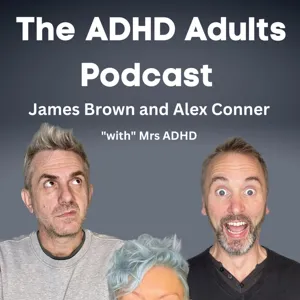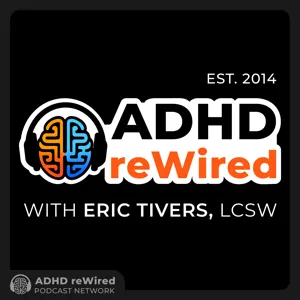Podcast Summary
Exploring the complexities of personality: Genetics, social environments, and self-direction shape our personalities, which can be assessed through various tests. Continuous efforts to change and adapt to new environments can significantly impact our personalities.
While we share similarities with all people, our individual differences in personality traits are influenced by various factors, including genetics, social environments, and self-direction. The debate continues on whether our personalities are set in stone or if we can change them throughout our lives. Personality tests, like the Myers-Briggs assessment, can provide some insights, but there are better assessments available that offer more accuracy. Lastly, changing environments and making conscious efforts to change ourselves can significantly impact our personalities. Overall, this conversation offers intriguing insights into the complex world of personality science and encourages us to explore the real you.
Understanding the Interplay of Nature and Nurture in Personality Development: Personality development is influenced by both genetic and environmental factors, with the extent of their impact varying depending on the specific traits.
Personality, the unique way we construct our lives, has been a subject of fascination for centuries. Modern academic study began in the early 20th century with two major perspectives: biogenic (rooted in biological factors) and cultural or social constructivist (shaped by cultural influences). Today, we understand that these influences interact, and both nature and nurture contribute to personality development. The extent of these contributions is complex and varies depending on the traits under consideration. For instance, while some traits, like height, have a strong genetic component, they can still be influenced by environmental factors. Personal construct, as discussed in the book, refers to how we see ourselves, highlighting the importance of understanding the role of individual perception in personality.
Our perception of reality is shaped by personal constructs: Personal constructs act as goggles shaping our view of reality. Having a diverse range of constructs promotes adaptability and resilience.
Our perception of ourselves and the world around us, shaped by our personal constructs, significantly influences our experiences and behavior. George Kelly, who developed this theory, believed that we are our constructs, and they act as goggles through which we view reality. However, relying too heavily on one construct can lead to rigidity and potential collapse when it's challenged. Therefore, having a diverse range of constructs that are interconnected yet independent is essential for adaptability and resilience. The example given is of a person whose identity was tied to being in the army, and when he was dismissed, his psychological structure collapsed. Instead, having a higher purpose or multiple roles can provide a more robust foundation for personal identity. This theory raises intriguing questions about career choices, individual differences, and the importance of maintaining a balance between various aspects of our lives.
How individuals perceive their roles impacts their performance and interactions: Understanding personal and thing orientations can lead to effective communication and collaboration, benefiting both individuals and organizations.
Individuals perceive themselves and their roles differently, and these perceptions can significantly impact their performance and interactions with others. For instance, an individual constructing a building may view themselves as simply laying bricks or building a cathedral. Similarly, an employee may see themselves as failing at their job but hold a strong family life in high regard. These differing perspectives can be categorized as personal orientation and thing orientation. Personal specialists, those with a strong personal orientation, are more expressive and empathetic when interacting with others. They focus on the nuances of behavior and tone. On the other hand, think specialists, those with a strong thing orientation, deal primarily with the observable features of what is being said. These orientations are not mutually exclusive; individuals can be high in both or low in one and high in the other. In the medical field, having both types of specialists is beneficial, as generalists can establish a strong patient relationship and listen deeply, while also being able to switch to a things specialist mindset to solve physical problems. Furthermore, there is no inherent link between gender and orientation; both men and women can exhibit personal or thing orientations. Overall, understanding these orientations can lead to more effective communication and collaboration in various professional settings.
Personality tests don't define us: Personality tests, like Myers-Briggs, provide insights but have low reliability. Focus on personal growth and diverse experiences instead.
While there are differences in personality traits between men and women, particularly in areas of interest, the concept of personality as measured by tests like Myers-Briggs is not a definitive or consistent indicator of who we are. The tests can provide interesting insights and initiate conversations about personality, but they should not be used to limit our potential or define us. Women with a high thing orientation, an interest in working with objects and understanding how they function, perform well in STEM fields, and those with a personal orientation, an interest in people and relationships, excel in roles that involve helping others. However, personality tests, including Myers-Briggs, have low reliability, meaning results can vary significantly from one testing to another. Therefore, it's essential to approach these tests with a critical and open mind and not to let them define our identities or limit our possibilities. Instead, focusing on what truly matters to us and exploring various aspects of our personalities can lead to a more fulfilling and diverse life experience.
Measuring Personality with Continuous Traits: Continuous measures of personality, like the Big Five traits, provide more reliable and useful results than categorical tests. Conscientious individuals, for example, tend to excel academically and professionally, and the Big Five traits have a biological basis and are normally distributed.
Continuous measures of personality, particularly the Big Five traits, are more reliable and useful than categorical tests like Myers-Briggs. The Big Five traits, which include openness, conscientiousness, extroversion, agreeableness, and neuroticism, have a significant impact on our lives. For instance, conscientious individuals, who make plans and keep to them, focus well on tasks, and take care of themselves, tend to do better academically, professionally, and even live longer. The Big Five personality traits have a biological basis and are normally distributed, with most people falling in the middle and fewer on the extremes. The Neo PI, developed by Paul Coston and Robert McCray, is a well-researched and commercially available measure of the Big Five traits. Other shorter measures are also accurate and accessible online. It's important to remember that self-reported personality tests may not always reflect an individual's true personality, so it's crucial to use reliable and valid measures for accurate assessment.
Understanding the complexities of personality traits: Neurotic individuals bring valuable insights through sensitivity, extroverts engage and energize groups but may experience overstimulation, recognizing the value of diverse perspectives fosters an inclusive and productive society, no single trait is inherently good or bad, and we all have the capacity to learn, grow, and leverage our unique traits.
While some personality traits like conscientiousness, neuroticism, and introversion/extroversion have their challenges, they also come with unique benefits. For instance, neurotic individuals, though prone to anxiety and vulnerability, can be highly sensitive and perceptive, bringing valuable insights to the table. Similarly, extroverts, known for their sociability, have the ability to engage and energize groups, but may also experience overstimulation and burnout. Understanding these complexities can help us appreciate the value of diverse perspectives and foster a more inclusive and productive society. Ultimately, it's essential to recognize that no single trait is inherently "good" or "bad," and that we all have the capacity to learn, grow, and leverage our unique traits to live fulfilling lives.
Understanding Personality Traits and Their Flexibility: Recognizing introversion and extraversion as influenced by situations and adjusting behavior accordingly can lead to effective communication and better relationships.
Our personality, including introversion and extraversion, can be influenced by situations and environments. The discussion highlighted the contrasting traits of introverts and extraverts, with introverts being more cautious and slow but accurate, while extraverts are quick and direct but may overlook details. The book also introduces the concept of self-monitoring, where individuals adjust their behavior based on situations. For instance, high self-monitorers adapt to different contexts, while low self-monitoring individuals remain consistent in their behavior. Understanding these personality traits and their potential flexibility can lead to better communication and relationships in various aspects of life, including business and personal relationships. Additionally, the discussion emphasized the importance of respecting and appreciating the differences between introverts and extraverts, rather than labeling one as inherently better than the other.
Understanding the interplay between our nature and situations: Recognize personal projects shape identity, may require adaptations, and can lead to growth or burnout
Our personalities are shaped by a combination of our genetics, free will, and the situations we find ourselves in. According to the discussion, there's a conflict between those who believe in the fixed nature of their identity and those who feel the need to adapt to new contexts. However, it's important to recognize that we all create personal projects in our lives that give meaning and shape to who we are. These projects may require us to act out of character, which can lead to growth and progress but also potential burnout. Ultimately, understanding the interplay between our first nature and the situations we encounter can help us navigate the complexities of identity and live more fulfilling lives.
Authenticity: A Complex Interplay of Biology, Society, and Personal Projects: Authenticity is a journey of self-discovery and self-expression influenced by our genes, social environment, and personal values.
Authenticity, as the buzzword suggests, is essential to being true to oneself. However, as discussed, authenticity is complex and can be influenced by our biology, environment, and personal projects. Our biogenic nature, influenced by our genes, can determine our base tendencies. Our sociogenic nature, shaped by our social and cultural milieu, can encourage or constrain us to act in certain ways. Lastly, our idiogenic nature, arising from our personal projects and values, can challenge our integrity and lead us to act authentically despite conflicting with our biogenic and sociogenic claims. As a professor, finding restorative niches to honor our biogenic nature can help us advance things that matter to us. Ultimately, authenticity is a continuous journey of self-discovery and self-expression, shaped by our unique combination of biogenic, sociogenic, and idiogenic influences.
Understanding the Interplay of Our Different Selves: We can shape our identities and improve ourselves by focusing on projects that align with our values and goals, despite inherent traits.
Our actions and identities are shaped by both our inherent traits and the projects and environments we choose to engage with. Author Brian Little discussed how our "three selves" – the automatic, the reflective, and the ideal – interact to form our sense of self. While some aspects of our personality may be fixed, others can be influenced by our choices and experiences. Little emphasized the importance of having core projects that encourage us to act in a more tender and authentic way, even if our culture or default tendencies might push us in a different direction. He also mentioned his upcoming book, "Who Are You Really?" which provides a shorter overview of his work. The empowering message of Little's research is that we have the ability to shape our identities and improve ourselves, even if we can't change certain inherent traits. By understanding the interplay between our different selves and focusing on projects that align with our values and goals, we can become the best version of ourselves.













